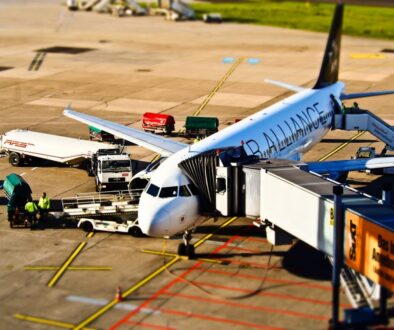Food Industry Transformation in El Salvador Driven by Strategic Alliance Between OPAMSS and ASI
Table of Contents
Contact the Central American Group to explore the foreign investment options in El Salvador and Costa Rica.
The food and beverage industry has emerged as one of El Salvador’s most progressive economic sectors, with substantial impacts on employment creation and export generation as well as industrial expansion. The essential sector is currently experiencing a significant transformation period. A strategic partnership between the Office of Planning for the Metropolitan Area of San Salvador (OPAMSS) and the Salvadoran Association of Industrialists (ASI) propels the food industry transformation in El Salvador, with an official launch at the 4th Food and Beverage Industry Congress (CIAB 2025).
The joint initiative lays the groundwork for an industry that meets worldwide benchmarks in innovation, environmental sustainability, and economic competitiveness. El Salvador aims to become a regional hub for food manufacturing, while its cooperation between OPAMSS and ASI shows an effective public-private partnership.
A Landmark Alliance for Industrial Modernization
Luis Rodríguez, Executive Director of OPAMSS-COAMSS, presented the new alliance as the foundation of the National Industry Plan during CIAB 2025 at the Sheraton Presidente Hotel in May. Rodríguez said the initiative provides strategic planning tools for the food and beverage industry, which supports the National Industry Plan to encourage innovation, together with improved efficiency and business development.
President Nayib Bukele’s larger commitment to modernizing industry and revitalizing the economy includes this agreement. The food industry transformation in El Salvador depends on deploying planning systems that nurture sustainable and resilient industrial development. These efforts will concentrate on establishing industrial areas while maintaining dependable infrastructure access, environmental regulation compliance, and supporting technological digital investments.
CIAB 2025: Merging Tradition with Innovation
CIAB 2025 stands as El Salvador’s leading forum for exploring future developments in the food and beverage sector. Leaders from different sectors gather to participate in strategic discussions at this event. The event addresses critical industry issues by featuring discussions on food safety, biotechnology, sustainability, digitalization, and shifting consumer patterns, which indicate a pressing need for innovation.
ASI President Jorge Arriaza underscored the event’s relevance to national development: “Our industry will evolve through a congress that merges traditional methods and modern technologies. Technical training, together with knowledge exchange and state collaboration, stands as fundamental for advancing progress.”
CIAB 2025 illustrates the critical role of public-private partnerships while supporting the narrative of the sector’s transition towards innovative solutions from traditional methods. The food industry transformation in El Salvador centers around the merging of its traditional practices with modern advancements.
Strategic Planning as a Growth Engine
The OPAMSS–ASI alliance focuses on developing territorial and strategic planning tools to steer industrial development. These tools work to create a more structured and innovative approach to both the physical setup and operational procedures within the food and beverage industry. The concept requires finding prime spots for facility establishment and developing scalable infrastructure, while embedding sustainable practices throughout the production process.
Efficient planning enables businesses to use land and resources intelligently, which results in lower energy expenses and better logistics while boosting productivity. Effective planning remains vital for meeting global market complexities while securing future growth during the food industry transformation in El Salvador.
Pilot Projects and Institutional Cooperation
The alliance promotes the implementation of the plan through pilot projects which demonstrate innovative technologies and development models. Both government and industry will receive support through detailed data analysis and technical evaluations, which will help them make well-informed investment decisions for the future.
Pilot implementations could feature green manufacturing areas and advanced food safety tracking systems while introducing intelligent energy management technologies. These projects will play a role in workforce development as well as supply chain efficiency and the adoption of international quality standards.
OPAMSS offers regulatory and technical guidance through collaboration, while ASI provides private-sector operational expertise and insights. Their combined efforts generate a synergistic framework, which strengthens various aspects of food industry transformation in El Salvador.
Academic and International Collaboration
The alliance is developing collaborative relationships with universities and research organizations, along with international bodies, to expand knowledge resources and strengthen industrial capabilities. These partnerships provide essential assistance with curriculum development while supporting technological research and policy design initiatives.
Local universities serve as key players in developing a workforce equipped for automation technology and sustainable manufacturing while aligning with global trade regulations. International allies can provide necessary funding and access to global best practices to build a top-tier industrial ecosystem.
The food industry transformation in El Salvador depends on academic and international connections to enable free knowledge exchange between sectors and help the country stay aligned with worldwide advancements.
Challenges and Opportunities for the Food Sector
The food industry in El Salvador, which traditionally thrived thanks to its abundant agricultural resources and cultural background, is now confronting novel challenges. The food industry in El Salvador contends with intense competition worldwide alongside swift technological advancements and environmental challenges, together with higher consumer demands.
The sector must implement modernization measures across diverse areas, including factory automation and digital logistics, as well as product innovation and environmental responsibility, to maintain its competitive position. Modern consumer demands for transparency and sustainability alongside quality standards oblige producers to make rapid adaptations to fulfill these requirements.
The OPAMSS–ASI partnership delivers essential leadership and strategic guidance needed to tackle challenges in this changing environment. Precisely, these public-private partnerships enable El Salvador’s food industry to overcome obstacles and seize emerging opportunities during its transformation.
Policy Impact and Vision for the Future
The Bukele government prioritizes industrial development, with the food and beverage sector identified as essential to advancing this goal. The integration of agricultural production with manufacturing and international trade positions this sector as a pivotal element of El Salvador’s economic diversification strategy.
The modernization of the industrial base in the country reveals the food sector as a promising model for sustainable growth. New development plans now incorporate circular economy methods together with renewable energy systems and advanced infrastructure.
The comprehensive plan guarantees sustainable development while enhancing El Salvador’s appeal to international investors and trade partners. The food industry transformation in El Salvador stands ready to generate positive outcomes for economic performance, as well as environmental conservation and social welfare.
Conclusion: Leading the Regional Food Revolution
The OPAMSS–ASI partnership marks a significant advancement for the nation’s industrial progression. This partnership merges strategic planning with actionable execution to build the basis for the next phase of industrial growth in the food and beverage industry.
Stakeholders throughout El Salvador demonstrate collective dedication to innovative practices and sustainable growth to maintain industry competitiveness in the dynamic global market. The food industry transformation in El Salvador represents both a national priority and serves as a regional example of inclusive and resilient development for future generations.
Contact Us
Please use this form to contact us and we will respond as soon as possible:





